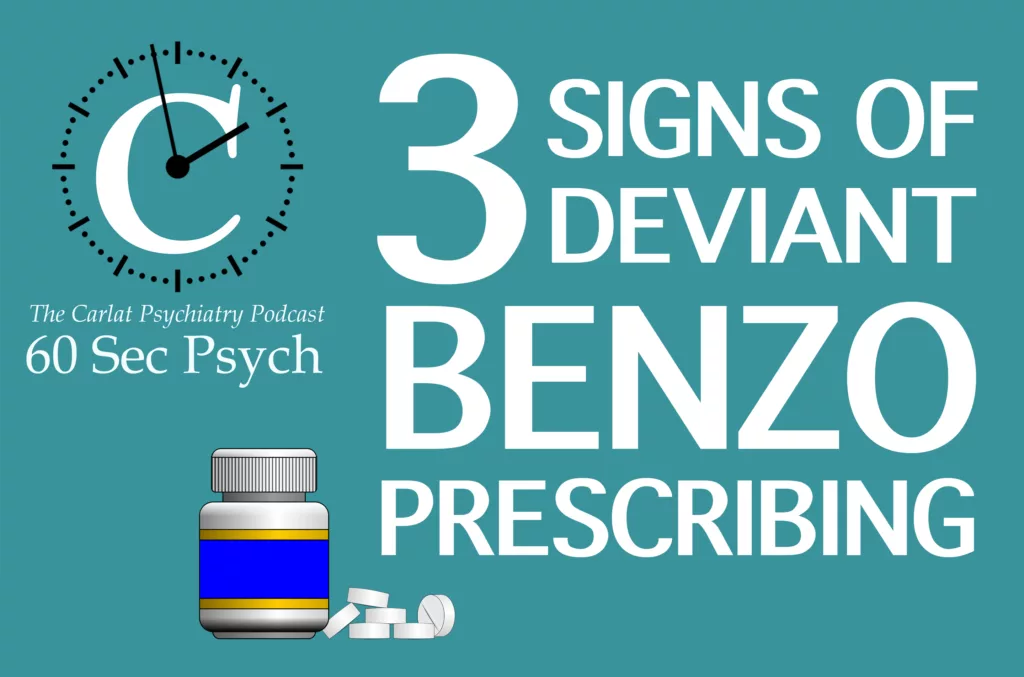A group of French psychiatrists released two papers this month that looked into how often physicians prescribe benzodiazepines and hypnotics in ways that deviate from the guidelines. The result: 20-30% of these prescriptions deviated, and the rate was even higher in chronic medical and psychiatric disorders: 45-68%. But what I found most useful in these papers was the definition of deviation. Study: Panes A, Pariente A, Bénard-Laribière A, et al. Use of benzodiazepines and z-drugs not compliant with guidelines and associated factors: a population-based study. Eur Arch Psychiatry Clin Neurosci. 2020;270(1):3‐10. [Link]
Published On: 6/20/20
Duration: 2 minutes, 52 seconds
Transcript:
A group of French psychiatrists released two papers this month that looked into how often physicians prescribe benzodiazepines and hypnotics in ways that deviate from the guidelines. The result: 20-30% of these prescriptions deviated, and the rate was even higher in chronic medical and psychiatric disorders: 45-68%. But what I found most useful in these papers was the definition of deviation. They based it on French guidelines, but it’s illuminating for all of us to think about how often we are off the mark.
- Prescribing benzos for longer than 1 month when used for sleep, or longer than 3 months when used for anxiety.
- Prescribing benzos with a half-life longer than 20 hours in people over age 75 or those over age 65 who have 2 or more active medical problems or are taking 5 or more medications.
Which ones have a long half life? Diazepam/Valium. Clonazepam/Klonopin. Clorazepate/Tranxene. Chlordiazepoxide/Librium. Quazepam/Doral. And arguably Alprazolam/Xanax.
- Prescribing 2 or more benzos at the same time
So how justified are these guidelines? I agree with the one about long-half life – those do increase the risk of falls, memory problems, as well as the overdose risk with opioids. A short half life benzo like lorazepam/ativan, temazepam/restoril, or oxazepam/serax is preferrable. And while short-term use of benzos is ideal, there’s at least one disorder where long term use is acceptable. Panic disorder is where benzodiazepines have the best evidence, and two are FDA approved there: clonazepam and alprazolam. Generalized and social anxiety disorders are a close second.
Panesa A, Verdouxac H, FourrierRéglatab, A et al. Use of benzodiazepines non-compliant with guidelines in patients with psychiatric and non-psychiatric chronic disorders. General Hospital Psychiatry, April 4, 2020, pre-proof in press.
Got feedback? Take the podcast survey.


_-The-Breakthrough-Antipsychotic-That-Could-Change-Everything.webp?t=1729528747)



